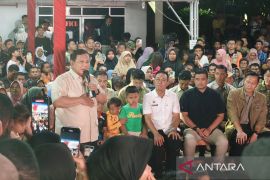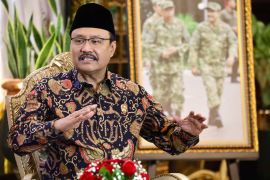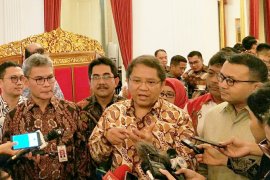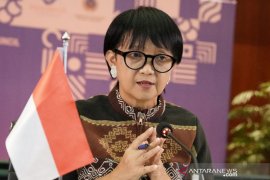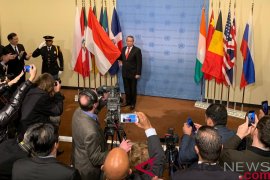Following an official request sent to the government, the group has urged the Indonesian permanent delegation Hasan Kleib and the Foreign Affairs Minister Retno Marsudi to actively engage in approving the resolution to ensure and protect the lives of the countrys future generations.
According to the groups coordinator Indry Octaviani, the resolutions main mission is to educate people that child marriage is a violation of human rights. Hence, the resolution has called on all countries to strengthen their efforts in anticipating and halting the practice.
According to the resolution, the crisis situations, including forced migration, armed conflict, and natural disasters, have caused children to struggle for access to their rights to education, sexual, and reproductive healthcare.
The resolution, which has already been adopted, is now being introduced to be further ratified by the UNs member countries.
The group has expressed belief that Indonesian governments support would encourage other nations, mainly the southeast Asian region, to ratify the resolution.
Koalisi 18+, comprising several campaigners, including End Child Prostitution, Child Pornography and Trafficking of Children for Sexual Purposes (ECPAT Indonesia), Institute for Criminal Justice Reform (ICJR), Coalition of Indonesian Women (KPI), Magenta, Semarak Cerlang Nusa (SCN-CRESTI), the Foundation of Child Supervision (YPHA), and the Indonesian Family Planning Association (PKBI), has actively campaigned against child marriage in the country for years.
The group is now seeking to raise the minimum age of marriage for Indonesian women by proposing a judicial review of the Marriage Law No.1/1974 article 7 line 1.
The case is now awaiting discussion at the Constitutional Court's first trial.
Indonesia has been ranked as the seventh country in child marriage case in the world, while in the southeast Asian region, the country is placed as the second.
The popular publication of Jurnal Perempuan has stated that the high rate of child marriage in Indonesia was caused by problems, including poverty, the lack access to education, health care, as well as information on sexuality and reproduction.(*)
Editor: Heru Purwanto
Copyright © ANTARA 2017
